Exploring the World of Chemistry: The Pioneering Work of Omar M. Yaghi
Introduction to a Luminary in Chemistry
Omar M. Yaghi is a name that resonates with innovation and groundbreaking discoveries in the field of chemistry. His work has significantly impacted the scientific community and continues to inspire researchers worldwide. With his pioneering research on metal-organic frameworks (MOFs) and covalent organic frameworks (COFs), Yaghi has opened new avenues in materials science, demonstrating innovative ways to solve some of the toughest challenges in energy storage and environmental sustainability. His contributions have made him one of the foremost figures in modern chemistry, celebrated for his distinctive approach to designing new materials from the atomic level up.
Early Life and Education
Born in Amman, Jordan, in 1965, Omar M. Yaghi's journey to becoming a prominent chemist was marked by passion, determination, and an unwavering curiosity about the natural world. His academic pursuit began at the University of Illinois at Urbana-Champaign, where he earned a Ph.D. in chemistry in 1990. Equipped with a robust educational background and a penchant for exploration, Yaghi embarked on a path that would eventually transform how scientists perceive and utilize molecular structures.
The Rise of Metal-Organic Frameworks (MOFs)
Omar Yaghi's most notable contribution to chemistry is perhaps his development of metal-organic frameworks. These are crystalline compounds made up of metal ions or clusters coordinated to organic molecules to form one-, two-, or three-dimensional structures. MOFs have a high surface area and are highly porous, which makes them extremely useful for applications such as gas storage, separation, catalysis, and even drug delivery.
The idea of using MOFs came about in the late 1990s when Yaghi envisioned materials that could be engineered to assemble themselves at the molecular level, resulting in customizable structures with unique properties. This vision led to the creation of the first MOF, which paved the way for a new class of compounds that could be tweaked and tailored for specific needs.
Impact on Environmental Sustainability
Yaghi's work on MOFs has profound implications for environmental sustainability. These innovative materials have the potential to revolutionize the way we capture and store carbon dioxide, a major greenhouse gas contributing to climate change. By designing MOFs with specific chemistries, researchers can create materials that selectively absorb CO2 from the atmosphere or industrial emissions, thereby helping to mitigate the impact of climate change.
Moreover, MOFs have shown promise in water harvesting from the atmosphere, particularly in arid regions where water scarcity is a critical issue. Yaghi's research demonstrated that MOFs could effectively capture water vapor from air with low humidity, thus providing a new method for sustainable water acquisition in environments where other resources are limited.
Advancements in Energy Storage
Another significant application of Yaghi's research is in the field of energy storage. The high porosity of MOFs allows them to store vast quantities of gases like hydrogen and methane. As the world moves towards cleaner energy sources, efficient storage solutions are essential. MOFs have emerged as promising candidates for hydrogen storage, potentially facilitating the adoption of hydrogen fuel cell technologies and serving as a bridge to a sustainable energy future.
The versatility of MOFs also makes them suitable for use in supercapacitors and batteries. Their structural properties enable the development of energy storage devices with enhanced capabilities, contributing to improvements in both performance and efficiency. As researchers continue to explore the potential of MOFs, the promise of a more sustainable and efficient energy landscape becomes increasingly attainable.
Conclusion
Omar M. Yaghi's contributions to the field of chemistry extend beyond the laboratory. His innovative approach to designing materials at the molecular level has opened up new possibilities in various fields, from environmental science to energy technology. Yaghi’s work exemplifies the transformative power of scientific research and its potential to address some of the world's most pressing challenges. As the study of MOFs and COFs continues to evolve, so too will the legacy of a chemist whose vision continues to redefine what is possible in materials science.
The Emergence of Covalent Organic Frameworks (COFs)
Beyond his work with metal-organic frameworks, Omar M. Yaghi has also made significant strides in the development of covalent organic frameworks (COFs). While MOFs are formed by coordinating metal nodes with organic linkers, COFs are constructed entirely from organic molecules. This makes COFs highly versatile, as they can be designed with specific chemical functionalities tailored to a variety of applications. The discovery and subsequent development of COFs have broadened the landscape of materials science, providing scientists with new tools to tackle complex environmental and technological issues.
COFs boast a highly ordered, crystalline structure similar to MOFs, but their fully organic composition offers additional benefits. They exhibit remarkable thermal stability and possess the potential for electronic and optical applications, expanding their utility in fields such as electronics, photonics, and sensing technologies. The modular nature of COFs allows for an array of functional groups to be incorporated, enhancing their adaptability to specific uses.
Applications in Chemical Sensing
One of the notable applications of COFs is in the realm of chemical sensing. Given their tunable properties and stability, COFs are particularly well-suited for detecting various chemical species, including gases and pollutants. Researchers have explored COF-based sensors for the detection of volatile organic compounds (VOCs), explosives, and other hazardous materials.
By integrating photonic and electronic components with these frameworks, scientists can create sensors that are not only precise but also highly sensitive, capable of identifying even minute concentrations of target substances. This has profound implications for environmental monitoring, public safety, and industrial processes, where real-time and accurate detection is crucial.
Progress in Catalytic Applications
In addition to chemical sensing, COFs have attracted significant attention for their potential as catalysts in chemical reactions. The ability to design COFs with specific pore sizes and functional groups makes them ideal candidates for catalytic applications, as these properties allow for the selective facilitation of reactions. This could lead to more efficient and environmentally friendly chemical processes, reducing the need for traditional catalysts that often involve toxic metals or harsh conditions.
Yaghi and his collaborators have demonstrated the use of COFs in a variety of catalytic applications, including photocatalysis and electrocatalysis. By leveraging the unique structural features of COFs, researchers can improve reaction rates and selectivity, ultimately leading to advancements in sustainable chemical manufacturing and energy production.
A Global Influence
Omar M. Yaghi's work has not only advanced scientific understanding but also inspired a global network of researchers dedicated to exploring the potential of MOFs and COFs. His collaborative spirit and dedication to science have fostered an environment of innovation and discovery, encouraging scientists around the world to pursue bold ideas and expand the possibilities of materials science.
Recognizing the importance of international cooperation in scientific research, Yaghi has been instrumental in establishing academic partnerships and research centers dedicated to MOF and COF research. These initiatives have facilitated the exchange of ideas, resources, and expertise, enabling the rapid advancement of the field and the cultivation of a new generation of scientists.
A Legacy of Education and Mentorship
Beyond his research contributions, Omar M. Yaghi has had a profound impact on the academic and scientific community through his role as an educator and mentor. As a professor at various prestigious institutions, including the University of California, Berkeley, and King Abdulaziz City for Science and Technology (KACST), Yaghi has mentored countless students and researchers, inspiring them to pursue their own scientific endeavors with rigor and creativity.
His commitment to nurturing young talent and fostering a spirit of inquiry has left an indelible mark on many, ensuring that the next generation of chemists will continue to push the boundaries of what is possible. Yaghi's emphasis on interdisciplinary collaboration and problem-solving equips his mentees with the skills and mindset needed to address complex global challenges, making his influence widely felt across the scientific community.
Recognition and Honors
Throughout his illustrious career, Omar M. Yaghi has received numerous accolades in recognition of his contributions to the field of chemistry. His awards span a diverse spectrum, underscoring both his scientific achievements and his impact on society. Among his many honors are the prestigious Wolf Prize in Chemistry, the Prince Sultan Bin Abdulaziz International Prize for Water, and the Linus Pauling Award, each celebrating his pioneering work and its transformative potential.
These distinctions serve as a testament to Yaghi's unwavering dedication to advancing the frontiers of science and his role as a trailblazer in the field of materials chemistry. As his work continues to inspire researchers across the globe, the legacy of Omar M. Yaghi as a visionary scientist and innovator becomes ever more pronounced, marking a significant chapter in the ongoing story of chemical exploration and discovery.
Driving Innovation in Water Harvesting
In recent years, the urgency of addressing water scarcity has amplified the relevance of Omar M. Yaghi’s work, particularly his contributions to atmospheric water harvesting technologies. With nearly two-thirds of the global population facing water shortages, Yaghi's innovations offer a beacon of hope. His development of MOFs designed specifically for water capture has transformed the theoretical possibilities into practical solutions. These structures can efficiently absorb water molecules from ambient air, even in environments with low humidity, and release it as liquid water under slight heating.
This breakthrough technology holds vast potential for transforming life in arid regions and providing a sustainable means of securing potable water. By advancing these systems, Yaghi sets a precedent for using chemistry to tackle critical global challenges, heralding a new era in which materials science contributes directly to enhancing the quality of human life.
Exploring the Frontiers of Reticular Chemistry
At the core of Yaghi's research is the concept of reticular chemistry, a term he coined to describe the precise construction of crystalline frameworks from molecular building blocks. This innovative approach allows for the creation of extended structures with bespoke properties, effectively bridging the gap between fundamental chemistry and applied materials science. Reticular chemistry underpins the design of both MOFs and COFs and serves as a tool for pioneering new materials with unprecedented capabilities.
Yaghi's exploration of reticular chemistry continues to inspire investigations into other framework compounds, such as zeolitic imidazolate frameworks (ZIFs) and porous aromatic frameworks (PAFs), each offering unique features suitable for a variety of technological solutions. The methodology promotes atomically precise design processes that reverberate throughout the scientific community, guiding research across disciplines such as nanotechnology, biomedicine, and green chemistry.
Future Horizons
The trajectory of Omar M. Yaghi's career is marked by a relentless pursuit of knowledge and an eagerness to explore the unknown. As the world looks toward the challenges of the future, Yaghi’s insights promise to drive further advancements in sustainable technologies. With ongoing research focused on enhancing energy efficiency, pollution reduction, and resource management, the potential applications of his work continue to expand, shaping a future where technology and sustainability are inextricably linked.
With his exceptional understanding of molecular frameworks, Yaghi consistently strives to push the boundaries of conventional science. The expanding research into high-performance catalysis for chemical reactions, advanced methods for CO2 capture, and innovative battery materials underscores the influence of his visionary thinking.
Inspiring a Global Movement
Omar M. Yaghi’s research has initiated a global movement centered on innovation, environmental responsibility, and academic collaboration. His devotion to harnessing the potential of chemistry for the benefit of society has resonated with scientists across continents, encouraging them to embrace a multidisciplinary approach and collaborate on addressing common challenges.
The establishment of multi-national research centers, such as the Kavli Energy NanoSciences Institute, exemplifies his emphasis on fostering international partnerships in scientific inquiry. These centers serve as incubators for ground-breaking research, enabling the seamless exchange of ideas and facilitating collective problem-solving.
A Visionary for the 21st Century
As one of the most influential chemists of his generation, Omar M. Yaghi has made a lasting impact on scientific understanding and real-world applications. His ability to envision and materialize novel compounds underscores his role as a leader in the evolving landscape of materials science. Yaghi's work exemplifies the synergy between scientific curiosity and societal needs, playing a crucial role in shaping the future of technology and environmental management.
Through his pioneering spirit and unwavering dedication, Yaghi offers a powerful narrative about the transformative potential of chemistry to improve lives and safeguard the planet. As the world embraces the demands of the 21st century, the tireless work of Omar M. Yaghi stands as a guiding light, ensuring that the path to discovery remains open, inclusive, and innovative.
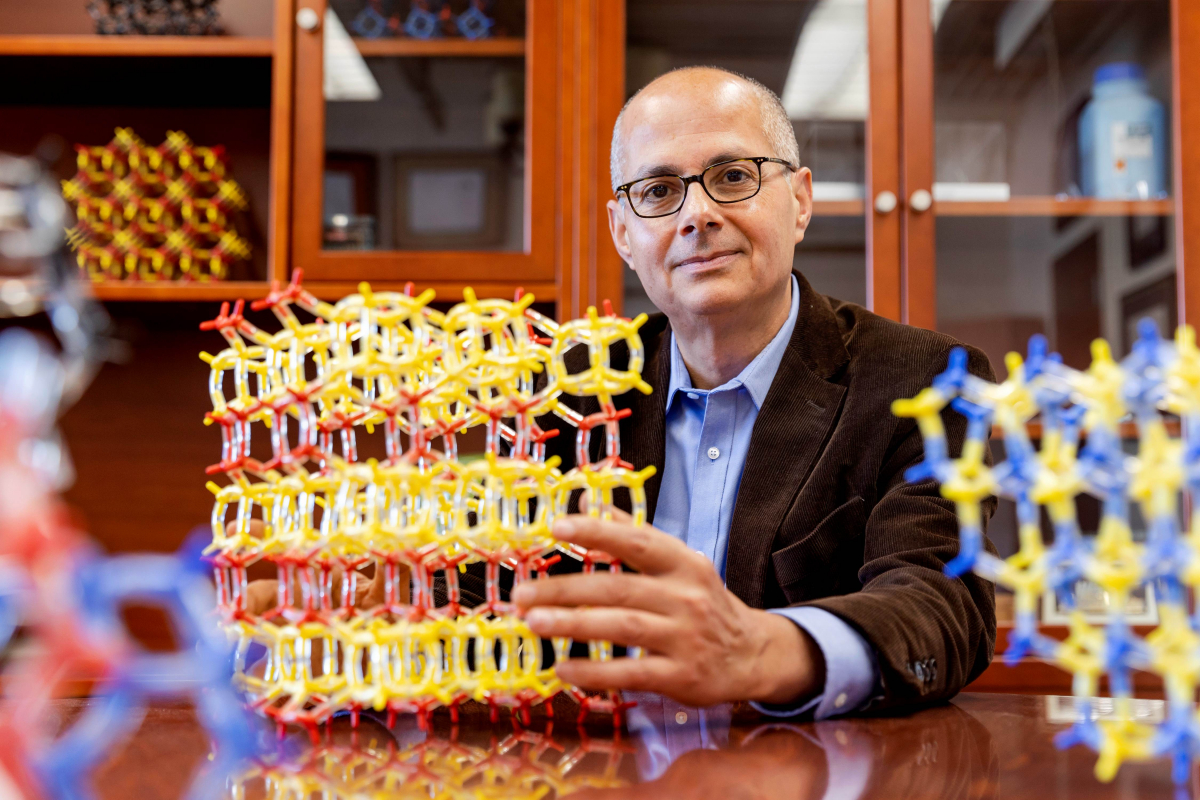
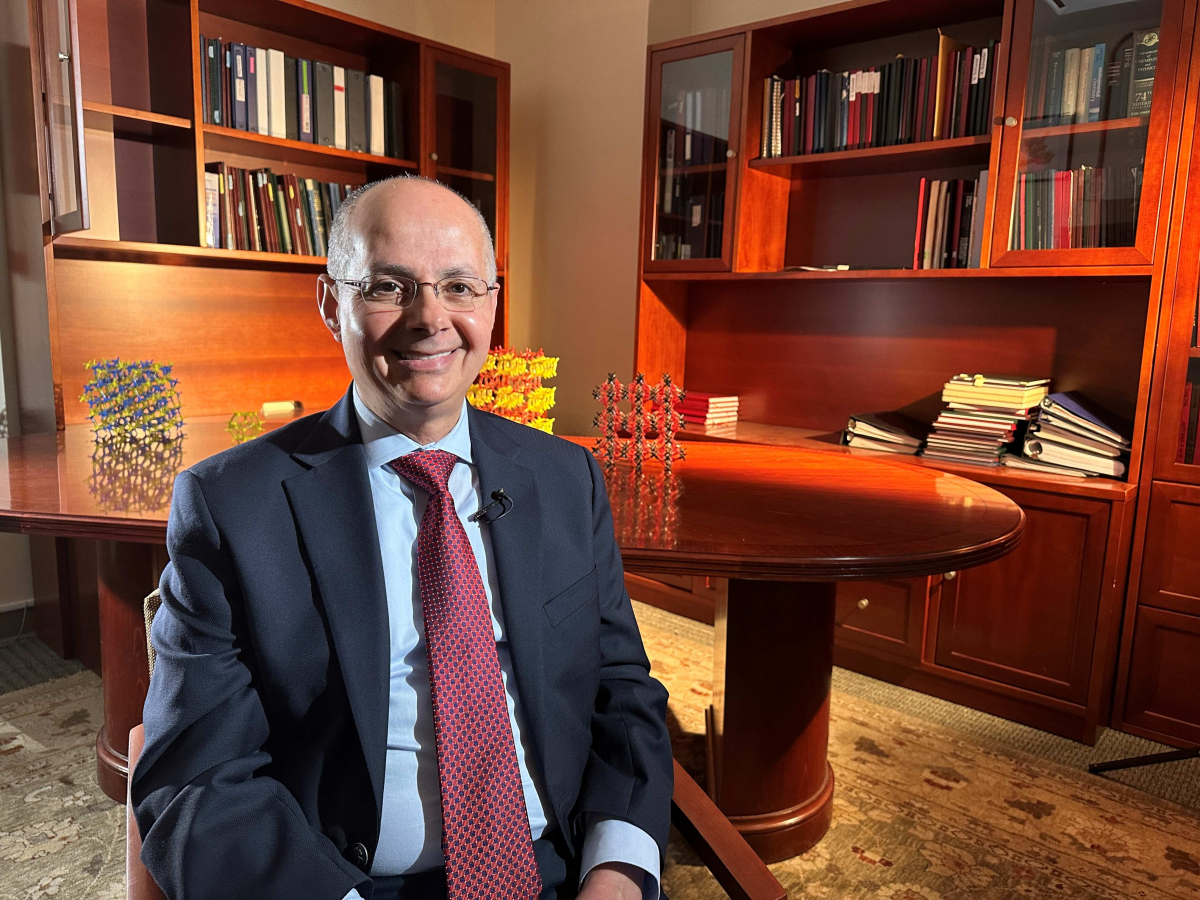


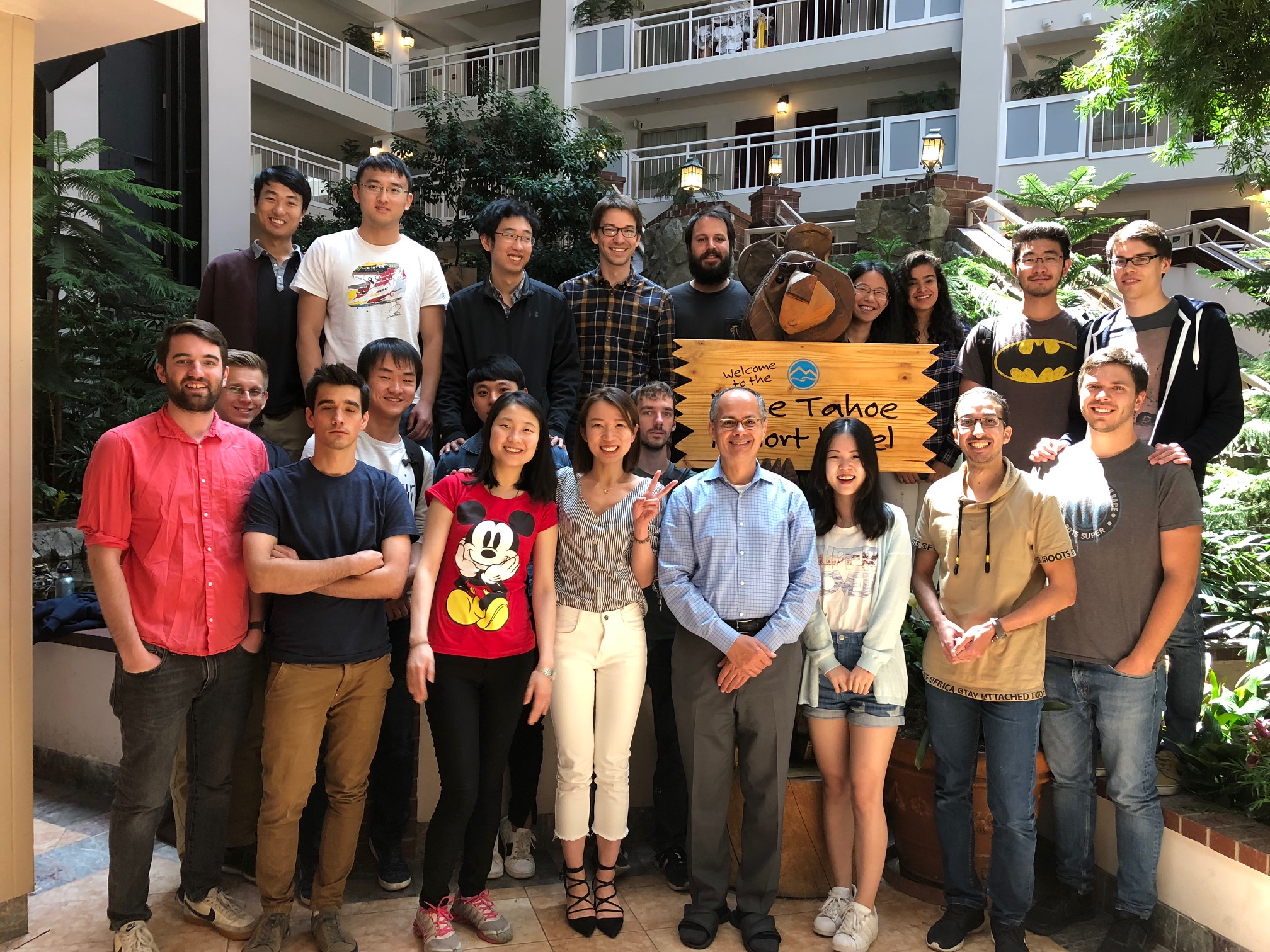
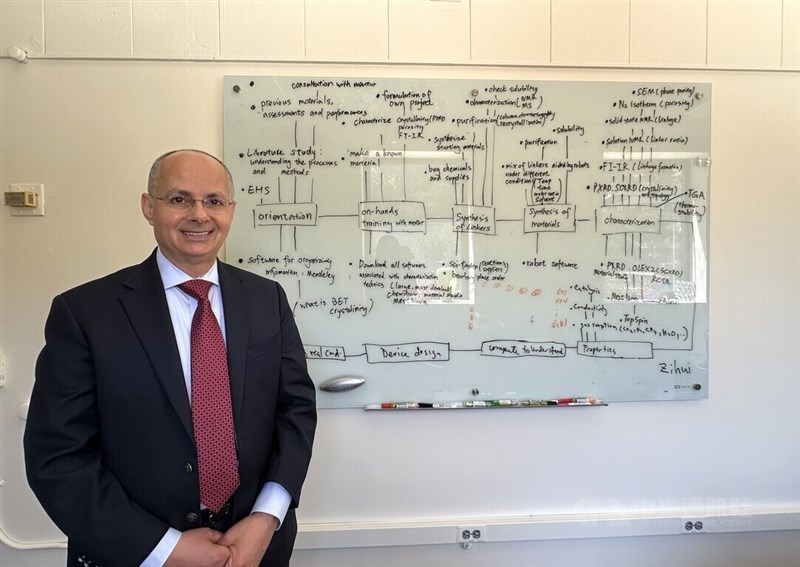

















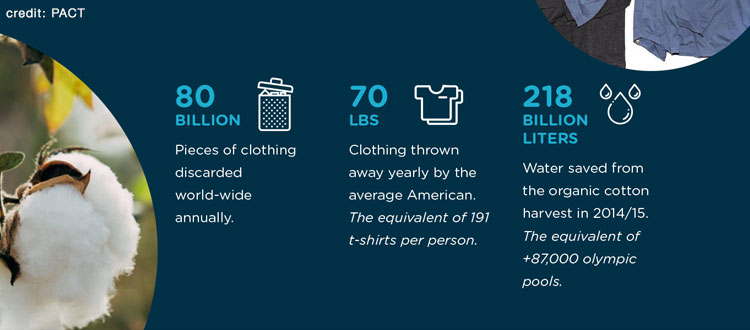
Comments